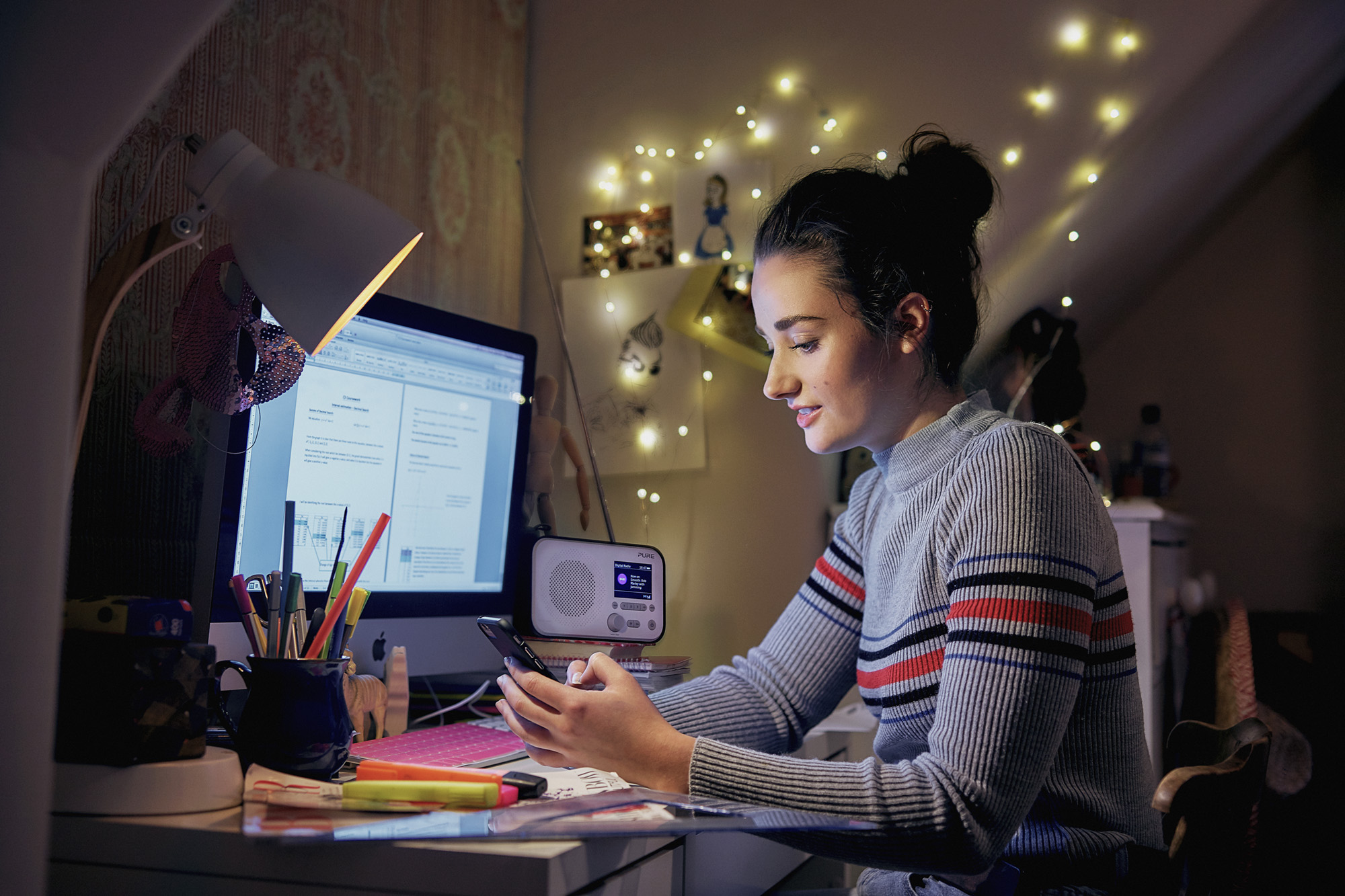Radio listening surges with working from home audiences

New research commissioned by Radiocentre shows that almost 8m adults working from home listen to commercial radio every day to help accompany their working day.
The research, by DRG, also shows how those working from home have saved money in the last year, have big spending plans and will seek to continue working from home once the restrictions are lifted.
This new Radiocentre research New Ways of Working, New Ways of Connecting, is the industry body’s fifth listener study since the pandemic started and explores how commercial radio can help advertisers connect to 56% of the total full time working from home audience.
The research, which was in field in February, looked at the financial status of the working from home audience, as well as their shopping habits and spending intentions. It discovered all those now working from home full-time are predominately (83%) aged between 25 and 54.
They are in a range of different jobs with 50% of them coming from sectors such as finance, IT, healthcare and government.
Although they are based all around the UK there is a higher concentration of home working in London and the South East. 84% of them are ABC1, and two thirds of this audience also own their home. They have high incomes, with a household income, on average, 45% greater than the national average.
50% of the commercial radio listeners who are working from home full-time are listening for longer than pre-pandemic, and this has increased from 45% since the first lockdown in March 2020, suggesting new listening habits were established at the very start of the pandemic and that these have become entrenched.
This audience relies on radio to lift their mood, stay up to date with news and keep them company while they go about their work. With nine out of ten (89%) of the working from home commercial radio audience specifying that they listening to more now because they can have the radio on while they do their work, the findings suggest that commercial radio is giving advertisers access to this high value audience during the working day at times where they may have been unlikely to have been listening pre-pandemic. This working from home audience is receptive to advertising, with 52% of them admitting that they search for something when they have heard it advertised on the radio.
Whilst for many the pandemic has caused financial concerns for many, with no commuting costs and other expenditure curbed by lockdown, commercial radio listeners who work from home have fared a lot better. 63% of this audience said they had saved money in the last year. They regularly treat themselves to takeaways, and are heavy users of online purchases from staples such as groceries, to more luxury wine and beer deliveries and recipe boxes. This group have changed their mind set about their local high street with a high percentage saying they are now trying harder to support local business, with many agreeing they are feeling more receptive to advertising by local companies.
This group of commercial radio listeners have ambitious spending plans for when lockdown measures are lifted. The working from home audience is keen to return to restaurants and other leisure pursuits and many are planning big purchases such as a new car and home improvements, with the highest proportion, 57%, planning a big holiday.
Once social distancing restrictions are lifted in the future and people return to offices, a high percentage of commercial radio listeners said they would seek to continue working from home for some or all of the working week. This suggests new habits of listening during the day will continue, giving advertisers access to this high value audience in the post-pandemic.
Lucy Barrett, Client Director at Radiocentre, said: “Radio helps listeners stay connected which is especially important during lockdown. What is particularly interesting about this research is that it explores the ways working from home audiences have adapted, continuing to spend during lockdown and their plans for big ticket purchases once restrictions are lifted.
“Now we have an impressive vaccine rollout and people are getting closer to returning to offices, it’s also interesting that this audience is keen to retain some form of working from home in the future and radio will always be there to keep them company.”
